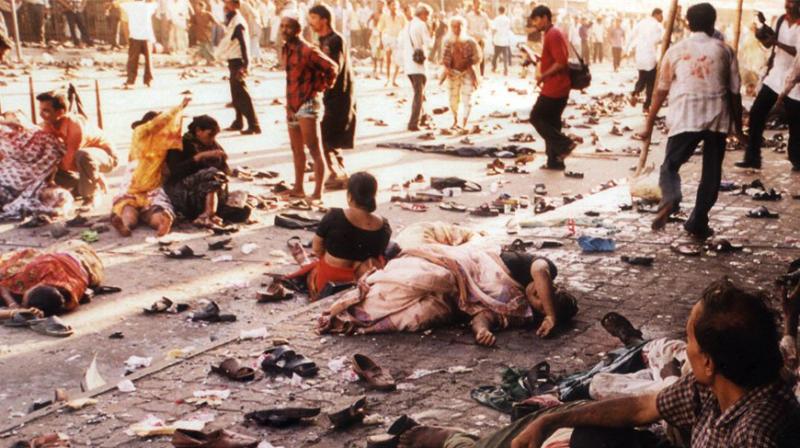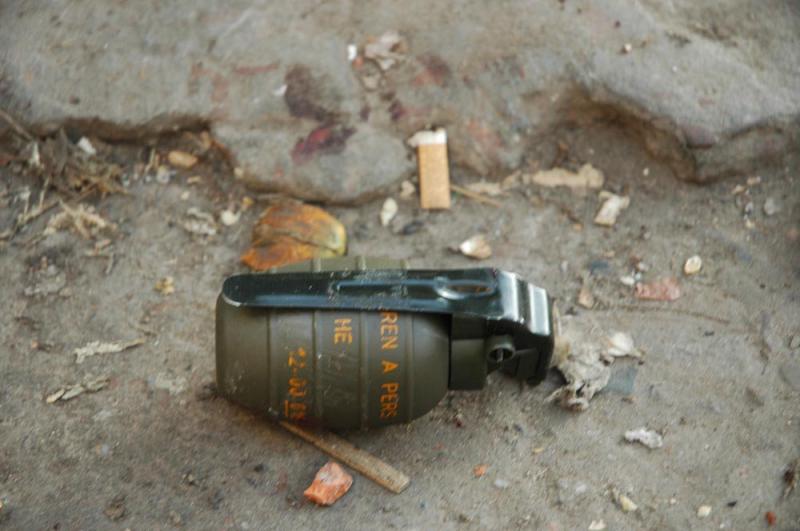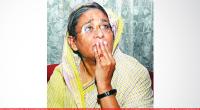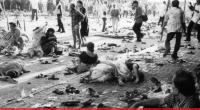 The long-awaited verdicts in two cases filed over the August 21, 2004 grenade attack on an Awami League rally in Dhaka which left 24 dead and scores injured are due on Wednesday.
The long-awaited verdicts in two cases filed over the August 21, 2004 grenade attack on an Awami League rally in Dhaka which left 24 dead and scores injured are due on Wednesday.
The then opposition leader, now Prime Minister, Sheikh Hasina was the prime target of the attack. She narrowly escaped death but Awami League (AL) leader Ivy Rahman and 23 others died on the spot while more than 300 others sustained injuries.
According to the charge sheet, the attack to annihilate AL and its leadership at the Dhaka rally was carefully orchestrated by a group of influential leaders from BNP and Jamaat-e-Islami - which were jointly in power at the time.
Working with militant outfit Harkat-ul-Jihad-al-Islami Bangladesh (Huji-B), they had collaborated with a section of senior officials of the Home Ministry, police, Directorate General of Forces Intelligence (DGFI), National Security Intelligence (NSI) and Prime Minister’s Office (PMO).
The attack was allegedly devised by a cohort comprised of Babar, the then state home minister; Harris Chowdhury, the political secretary to the then prime minister, Khaleda Zia; Ali Ahsan Mohammad Mujaheed, the then secretary general of Jamaat; Brig Gen. Abdur Rahim, the then NSI director general; and Brig Gen Rezzaqul Haider Chowdhury, the then DGFI Director.
Prosecution witnesses said Huji leaders met BNP leader Tarique Rahman a few days before the attack and got the go-ahead to carry out the grenade blasts.
According to case dockets, government high-ups had then made efforts to bury the truth and protect the masterminds by derailing the police investigation.
Media reports also attempted to feed people another story woven around one Joj Mia, a petty criminal.
They forced Joj to make a confessional statement naming Mokhlesur as one of the plotters.
The Criminal Investigation Department (CID) pressed charges against 22 people on June 11, 2008. They included Mufti Hannan, the leader of the Bangladesh chapter of militant outfit Harkat-ul Jihad-al-Islami, and former deputy minister Abdus Salam Pintu.
They included Mufti Hannan, the leader of the Bangladesh chapter of militant outfit Harkat-ul Jihad-al-Islami, and former deputy minister Abdus Salam Pintu.
After the Awami League came to power in December 2008, the prosecution filed a petition with the Dhaka Speedy Trial Tribunal 1 for further investigation to identify the grenade suppliers and financiers of the attack.
Consequently in March 2011 the tribunal started trying a total of 52 people accused in two cases lodged with Motijheel police station: one filed for murder and the other under the Explosive Substances Act.
Of the 52 people accused, three have since been executed in other cases while 18 - including BNP Senior Vice Chairman Tarique Rahman – have been tried in absentia.
The special court of Judge Shahed Nuruddin sitting in Dhaka recently finished the trail proceedings in both cases, and is due to announce the verdicts on Wednesday.
Police have been kept on high alert to thwart any possible violence over the verdict.
“No mischief or shenanigans will be tolerated. If anybody tries to destabilise the situation that will be strictly dealt with and perpetrators will be brought under justice,” said Dhaka Metropolitan Police (DMP) commissioner, Asaduzzaman Mia.
 Others
Others
30715 hour(s) 23 minute(s) ago ;
Afternoon 02:17 ; Thursday ; Apr 18, 2024
Aug 21 attack: Wait for justice ends Wednesday
Send
Jamal Uddin
Published : 07:45, Oct 10, 2018 | Updated : 07:45, Oct 10, 2018
Published : 07:45, Oct 10, 2018 | Updated : 07:45, Oct 10, 2018
0 ...0 ...
/hb/
Topics: Top Stories
- KOICA donates medical supplies to BSMMU
- 5 more flights to take back British nationals to London
- Covid19: Rajarbagh, Mohammadpur worst affected
- Momen joins UN solidarity song over COVID-19 combat
- Covid-19: OIC to hold special meeting
- WFP begins food distribution in Cox’s Bazar
- WFP begins food distribution in Cox’s Bazar
- 290 return home to Australia
- Third charter flight for US citizens to return home
- Dhaka proposes to postpone D8 Summit
Unauthorized use of news, image, information, etc published by Bangla Tribune is punishable by copyright law. Appropriate legal steps will be taken by the management against any person or body that infringes those laws.
Bangla Tribune is one of the most revered online newspapers in Bangladesh, due to its reputation of neutral coverage and incisive analysis.
F R Tower, 8/C Panthapath, Shukrabad, Dhaka-1207 | Phone: 58151324; 58151326, Fax: 58151329 | Mob: 01730794527, 01730794528


